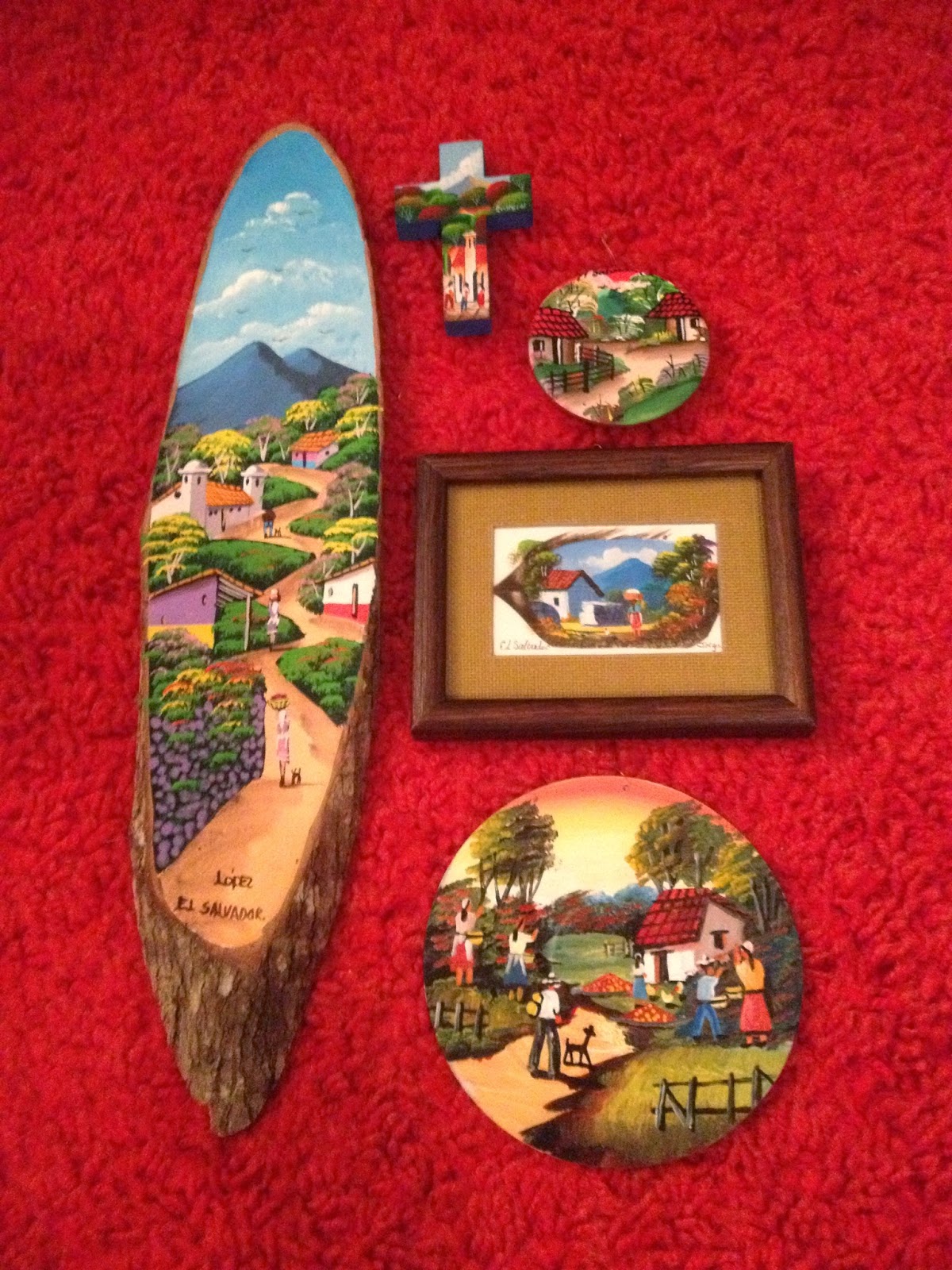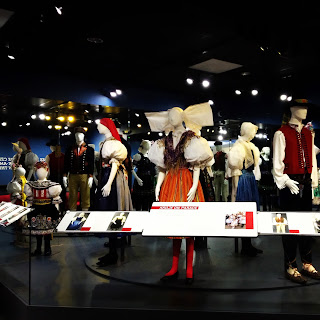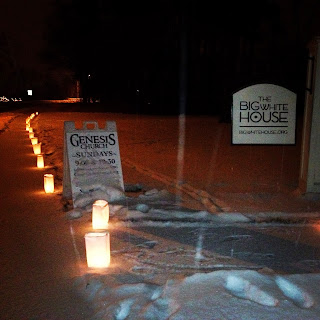I pause to acknowledge that half my third year of dental training will be complete in a week! As my 22nd birthday came to pass several weeks ago, it began to dawn on me that I have just 18 months left in the dental training chapter of my life. As I flipped through past entries on this weblog (particularly the unrushed reflections during my internship in Latin America) I was amazed at the tenacity with which those experiences have been guiding my pursuits since. I aim to seek meaning in my efforts (rather than comfort) but often question my intentions when met with competing interests or situations that elevate values towards which I do not strive. It is encouraging to know that my past experiences are subconsciously supporting my purposeful ventures. Especially during weeks that seem to spin on fast forward with circuitous efforts, I've found the below tunes relevant and hope you'll enjoy the snippets that have stuck out to me. Included are also photos from the past months' endeavors.
Father and Son (Cat Stevens): I was once like you are now, and I know that it's not easy to be calm when you've found something going on. But take your time, think a lot. Why, think of everything you've got. For you will still be here tomorrow, but your dreams my not. <https://www.youtube.com/watch?v=vdMPuMeTxzY>
Dying to Live (Yusuf/Cat Stevens): So I'll keep fighting to live till there's no reason to fight. And I'll keep trying to see until the end is in sight. You know I'm trying to give, so c'mon give me a try. You know I'm dying to live until I'm ready to die. <https://www.youtube.com/watch?v=yq8BJX0GhgI>
Answer For (Jon Troast): When you feel like you're unstoppable...and what's done is done. When someone tries to define you with their own intentions, do I need to remind you to pay no attention? Don't worry if it isn't true, cuz' the only one you're gonna answer for is you. <http://www.amazon.com/Answer-For/dp/B0054DP15W>
Know So Much (Jon Troast): Seems these days, there so much to remember, always something on your mind. So many things to do, but chasing after them, you're running out of time. You don't need to know so much, you don't need to do it all. The world is an open door, sometimes it feels more like a wall. You're trying to hold it up, and I'm waiting for it to fall...you don't need to know so much. <http://www.amazon.com/Know-So-Much/dp/B006PL4QJY>
Over This Mountain (Jon Troast): I've been walking since I knew how, didn't know what for. I've lost track of the steps I took, but I keep taking more.
Somewhere over this mountain, I'm gonna find a place to land. When I've walked through this valley, I'm gonna hold up my hands. And when I'm standing on the rock that won't let me fall, I'll say, "Oh my, oh my: look at it all!"
Some people try to bring me down; they say it's just a dream. But I'm not listening, cuz' I still believe!
I've been taking steps for years now, my feet are tired and somehow I need to rest my mind. Something's waiting for me...standing on the shore of the world (that I can't seem to find).
Somewhere over this mountain, I'm gonna find a place to land. <https://www.youtube.com/watch?v=A73wwEwzSvM>
The Longest Time (Jon Troast): Nobody has ever been too ready for something that meant the world. Nobody is ever prepared too much waiting for something they love.
So she waits by the window, keeping her lamp lit every night. While all the shadows dance, she keeps staring at the door. Until one night it opens, standing before her in the light: the one she was waiting for, questions her, "Were you expecting me?" She says, "For the longest time!"
Why won't she find some sort of remedy so she won't have to hold on? Does she know something that we all don't. Is she sure that he's coming home? <http://www.amazon.com/The-Longest-Time/dp/B001A5WHJQ>
Deep Breath (Jon Troast): There is a song inside of me: gloria, gloria. I sing it every time I breath: gloria, gloria.
Take a deep breath, remember the feeling. The miracle lies in the fact that you're breathing. The harder you try, the more you're just doin' your own thing. Why don't you relax, not get something done. Feel every breath as it fills up your lungs. Each one is a gift: take every one in the moment.
Look in the mirror. Stare at your face. I'm sure there are things you wish you could erase, but if they weren't there it'd still be your reflection. Cuz' nobody else has a face like yours. Without speaking a word, it says so much more about being unique; baby, it's all there for a reason.
Well, I can't help but sing with every breath...it's not what I do, but who I am that says it best.
When you think what defines you is your line of work; how much you get done determines your worth. You feel like you're running in circles for no good reason. Look in the mirror and smile at yourself; take a deep breath and hope that it helps you stop for a while: know that you're loved as you're breathing! <https://www.youtube.com/watch?v=R1D5-K5blvY>
Not This Battle (Jon Troast): I wasn't made to fight, not this battle: it's just hollywood (a ballgame) not the things that matter. Like the orphans and the widows, the crippled and the crooks...they need me more than the TV (home team) ever could.
I spend all my energy on stuff that won't affect a thing. It's time for me to stand up and step into the rink! Cuz' I was made to fight, but not this battle... <http://www.amazon.com/Not-This-Battle/dp/B001GU8Q6S>
Vienna (Billy Joel): But you know that when the truth is told, that you can get what you want or you can just get old.
Slow down, you're doing fine. You can't be everything you want to be before your time.
You've got your passion, you've got your pride, but don't you know that only fools are satisfied. Dream on, but don't imagine they'll all come true. <https://www.youtube.com/watch?v=oZdiXvDU4P0>
Movin' Out (Billy Joel): And it seems such a waste of time. If that's what it's all about..Mama, if that's movin' up, then I'm movin' out!
..You can pay Uncle Sam with the overtime. Is that all you get for your money? And if that's what you have in mind...Yeah, if that's what you're all about, good luck movin' up, cuz' I'm movin' out! <https://www.youtube.com/watch?v=8buJ2-oD02E>
Storm Comin' (Wailin' Jennys): When that storm comes, don't run for cover...no, there ain't no use in runnin'
When that rain falls, let it wash away...the tears and trouble
When those lights flash, here that thunder roar...let your spirit soar
When that love comes, open up your door...stand on love and let it in
When that storm comes, don't run for cover...cuz' you can't keep a storm from comin'!
<https://www.youtube.com/watch?v=OguVb3uSZTs>
Father and Son (Cat Stevens): I was once like you are now, and I know that it's not easy to be calm when you've found something going on. But take your time, think a lot. Why, think of everything you've got. For you will still be here tomorrow, but your dreams my not. <https://www.youtube.com/watch?v=vdMPuMeTxzY>
Dying to Live (Yusuf/Cat Stevens): So I'll keep fighting to live till there's no reason to fight. And I'll keep trying to see until the end is in sight. You know I'm trying to give, so c'mon give me a try. You know I'm dying to live until I'm ready to die. <https://www.youtube.com/watch?v=yq8BJX0GhgI>
Answer For (Jon Troast): When you feel like you're unstoppable...and what's done is done. When someone tries to define you with their own intentions, do I need to remind you to pay no attention? Don't worry if it isn't true, cuz' the only one you're gonna answer for is you. <http://www.amazon.com/Answer-For/dp/B0054DP15W>
Know So Much (Jon Troast): Seems these days, there so much to remember, always something on your mind. So many things to do, but chasing after them, you're running out of time. You don't need to know so much, you don't need to do it all. The world is an open door, sometimes it feels more like a wall. You're trying to hold it up, and I'm waiting for it to fall...you don't need to know so much. <http://www.amazon.com/Know-So-Much/dp/B006PL4QJY>
 |
| Beignets, a traditional New Orleans donut treat |
Over This Mountain (Jon Troast): I've been walking since I knew how, didn't know what for. I've lost track of the steps I took, but I keep taking more.
Somewhere over this mountain, I'm gonna find a place to land. When I've walked through this valley, I'm gonna hold up my hands. And when I'm standing on the rock that won't let me fall, I'll say, "Oh my, oh my: look at it all!"
Some people try to bring me down; they say it's just a dream. But I'm not listening, cuz' I still believe!
I've been taking steps for years now, my feet are tired and somehow I need to rest my mind. Something's waiting for me...standing on the shore of the world (that I can't seem to find).
Somewhere over this mountain, I'm gonna find a place to land. <https://www.youtube.com/watch?v=A73wwEwzSvM>
The Longest Time (Jon Troast): Nobody has ever been too ready for something that meant the world. Nobody is ever prepared too much waiting for something they love.
So she waits by the window, keeping her lamp lit every night. While all the shadows dance, she keeps staring at the door. Until one night it opens, standing before her in the light: the one she was waiting for, questions her, "Were you expecting me?" She says, "For the longest time!"
Why won't she find some sort of remedy so she won't have to hold on? Does she know something that we all don't. Is she sure that he's coming home? <http://www.amazon.com/The-Longest-Time/dp/B001A5WHJQ>
Deep Breath (Jon Troast): There is a song inside of me: gloria, gloria. I sing it every time I breath: gloria, gloria.
Take a deep breath, remember the feeling. The miracle lies in the fact that you're breathing. The harder you try, the more you're just doin' your own thing. Why don't you relax, not get something done. Feel every breath as it fills up your lungs. Each one is a gift: take every one in the moment.
Look in the mirror. Stare at your face. I'm sure there are things you wish you could erase, but if they weren't there it'd still be your reflection. Cuz' nobody else has a face like yours. Without speaking a word, it says so much more about being unique; baby, it's all there for a reason.
Well, I can't help but sing with every breath...it's not what I do, but who I am that says it best.
When you think what defines you is your line of work; how much you get done determines your worth. You feel like you're running in circles for no good reason. Look in the mirror and smile at yourself; take a deep breath and hope that it helps you stop for a while: know that you're loved as you're breathing! <https://www.youtube.com/watch?v=R1D5-K5blvY>
Not This Battle (Jon Troast): I wasn't made to fight, not this battle: it's just hollywood (a ballgame) not the things that matter. Like the orphans and the widows, the crippled and the crooks...they need me more than the TV (home team) ever could.
I spend all my energy on stuff that won't affect a thing. It's time for me to stand up and step into the rink! Cuz' I was made to fight, but not this battle... <http://www.amazon.com/Not-This-Battle/dp/B001GU8Q6S>
Vienna (Billy Joel): But you know that when the truth is told, that you can get what you want or you can just get old.
Slow down, you're doing fine. You can't be everything you want to be before your time.
You've got your passion, you've got your pride, but don't you know that only fools are satisfied. Dream on, but don't imagine they'll all come true. <https://www.youtube.com/watch?v=oZdiXvDU4P0>
Movin' Out (Billy Joel): And it seems such a waste of time. If that's what it's all about..Mama, if that's movin' up, then I'm movin' out!
..You can pay Uncle Sam with the overtime. Is that all you get for your money? And if that's what you have in mind...Yeah, if that's what you're all about, good luck movin' up, cuz' I'm movin' out! <https://www.youtube.com/watch?v=8buJ2-oD02E>
Storm Comin' (Wailin' Jennys): When that storm comes, don't run for cover...no, there ain't no use in runnin'
When that rain falls, let it wash away...the tears and trouble
When those lights flash, here that thunder roar...let your spirit soar
When that love comes, open up your door...stand on love and let it in
When that storm comes, don't run for cover...cuz' you can't keep a storm from comin'!
<https://www.youtube.com/watch?v=OguVb3uSZTs>
 |
| Spending time with family (especially quickly-growing nieces and nephews) made for a wonderful pre-exam break! |
After a week of clinical rotations and exams, I look forward to visiting University of Iowa's Dental Public Health and Geriatric/Special Needs residency programs to gauge my fit as an NHSC Scholar. I am also excited to visit a childhood friend who moved to Nebraska in the past year...I supposed it better to visit her in blizzard weather than tornado weather : )
.jpg)










.JPG)
.JPG)
.JPG)

















































